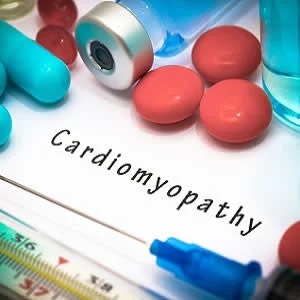The safety of withdrawing treatment in patients with dilated cardiomyopathy is a question often asked. Patients are keen to know whether they need to continue lifelong treatment or not. This is especially true for patients who are experiencing side-effects. The motivation to discontinue treatment is also more evident among younger patients. In addition, medications can be quite costly in some countries and long-term treatment can be a significant burden for some patients.
However, it is still unknown whether treatment withdrawal is the right step for patients with a previous diagnosis of dilated cardiomyopathy. Some patients may achieve permanent recovery, but there are others who might suffer a relapse if treatment is withdrawn.
An open-label, pilot, randomised trial examined the effect of phased withdrawal of heart failure medications in patients with previously dilated cardiomyopathy. These patients were asymptomatic, and their left ventricular ejection fraction (LVEF) had improved from less than 40% to 50% or greater. Also, their left ventricular end-diastolic volume (LVEDV) had also normalised and their N-terminal pro-B-type natriuretic peptide (NT-pro-BNP) concentration was less than 250 ng/L.
This study is the first prospective randomised trial to investigate withdrawal of treatment in patients with dilated cardiomyopathy and who were deemed to have recovered. For the study, patients were randomly assigned to two groups: phased withdrawal and continuation of treatment. Treatment for patients in the continued treatment group was withdrawn after six months.
The primary endpoint was a relapse of dilated cardiomyopathy within six months. This was defined by:
- A reduction in LVEF of more than 10% and to less than 50%.
- An increase in LVEDV by more than 10%.
- A two-fold rise in NT-pro-BNP concentration.
- Clinical evidence of heart failure.
Secondary endpoints comprised a composite safety endpoint which included cardiovascular mortality, major adverse cardiovascular events, and unplanned cardiovascular hospital admission.
The findings of the study showed that 44% of patients who were assigned to the treatment withdrawal group met the primary endpoint of relapse over the first six months. None of those assigned to the continued treatment group met the endpoint. 96% of patients in the continued treatment group were assigned to the withdrawal group after six months. During the following six months, nine patients met the primary endpoint of relapse.
There were no deaths in either group, but three serious adverse events were reported in the treatment withdrawal group. These events included non-cardiac chest pain, sepsis, and an elective procedure. No unplanned hospital admissions for heart failure or major adverse cardiovascular events were reported in either group.
Study findings show that patients who have recovered from dilated cardiomyopathy will relapse if treatment is withdrawn completely. It is thus important for clinicians to continue treatment in such patients to avoid the risk of adverse events and relapse.
Overall, study findings show that treatment was withdrawn successfully in only 50% of patients. 40% of the patients had a relapse within six months. More patients might have relapsed if treatment was withdrawn for a longer period. Findings thus suggest that for many patients, improvement in cardiac function does not necessarily mean full and sustained recovery but could reflect remission. Some treatment may need to be maintained, and hence treatment withdrawal should not be attempted routinely in these patients.
Source: The Lancet
Image Credit: iStock
References:
Halliday, BP et al. (2018) Withdrawal of pharmacological treatment for heart failure in patients with recovered dilated cardiomyopathy (TRED-HF): an open-label, pilot, randomised trial. The Lancet. DOI:https://doi.org/10.1016/S0140-6736(18)32484-X
Latest Articles
heart failure, dilated cardiomyopathy, treatment withdrawal
An open-label, pilot, randomised trial examined the effect of phased withdrawal of heart failure medications in patients with previously dilated cardiomyopathy.










